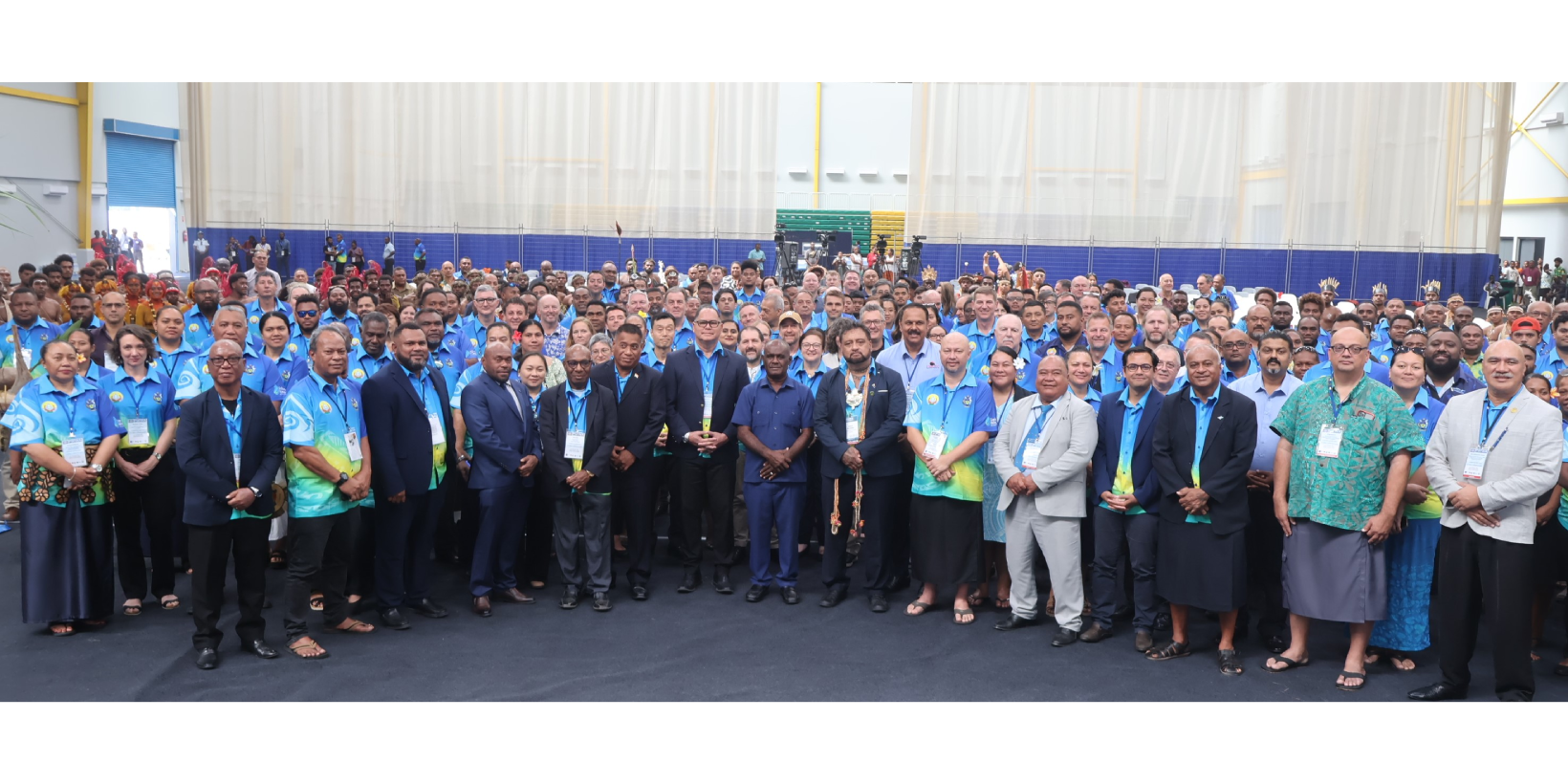About seven percent (7%) of Solomon Water female staff make up the 24% female workers in the State Owned Enterprise (SOE) that are actively taking leadership roles supporting the organization’s strategies and recognize the efforts and energy that women bring into the workforce.
These women have undergone a Pathway Leadership Program which trains them how to lead in the organization that employs over 240 employees.
Solomon Water has 34% representation of women in the workforce and 76% male.
In the SOE’s corporate strategic plan 2024 to 2028, there is the need to push the ratio and they are investing in building capacity, but also in the space for women.
As part of that, 10 female participated in the Leadership Pathway program.
Speaking in their “Leadership Development Journey: Our Reflection, Stories of Growth and Inspiration” presentation at the 16th Water and Wastewater Association (PWWA) Conference and Expo 2025 last week at the Aquatic Center, three women: Michelle Maelaua, Lucy Habu and Rhonda Tavalo, expressed their acknowledgement about the program.
Ms Maelaua shared that the program really outlines leadership very clear to her as a leader.
“Initially we think of it (leader) as a position, but it’s more of a process. It’s a process of how do you influence people, how do you build trust with people, with your employees,” she said.
She added that the program gives her the opportunity to realize how to make decisions, how to communicate and how it has impact on employees.
“Once we self-reflect, it gets us to really understand and realize, ‘What could I have done better to make a decision or communicate with my employee.
“Another reflection is self-awareness. I guess going through this program has got me to be more aware of myself, what are my triggers and my incapabilities,” Ms Maelaua shared.
She added that in terms of her leadership growth, there’s quite a number of areas such as active listening and making leadership decisions.
“I realized I spent most of my time just dealing with management stuff. But with this program, I tend to see more clearly the difference between management and leadership, but also making decisions,” she said.
Ms Tavalo shared that with the program, she learnt the key concept of leadership, where leadership is a process of influence.
“It is the ability of a leader or individual to influence people who will be voluntarily followed without any title or common authority.
“So I believe this program helped me to overcome my challenges and to achieve my goal, which is to improve communication, building confidence to influence and make positive change,” Ms Tavalo shared.
She added that before going through the program she could never speak up. “I lack confidence and was well-reserved but after the program, she was able to overcome those challenges and grow.
“Leadership growth only happens when individuals or leaders have challenges and have motivation to build and to develop new perspectives and to develop resilience.
“I’ve come to learn that in order to build change, we need to put ourselves into the situation. We have to show up, we have to speak up, we have to adapt to whatever change,” Ms. Tavalo said.
Ms Habu shared that self-leadership is an important area she discovered with the program and her journey as Solomon Water’s Manager for Customer Services.
“Clarity in your purpose and values is very important as a leader in order for you to align your personal values to your professional career.
“In that way, I find that I have my passion to work in the area that I am currently looking after all the serving customers for Solomon Water,” she said.
She added that story-telling is another important value as a leader because it’s when you carry the change in an organization.
In terms of self-regulation, as a leader, one has to learn to manage himself/herself.
“And because you are a role model in the organization, you have to let go of some of your behaviour and see yourself, where are you as a leader within the organization.
“And so self-regulation is an area that I have also faced as a challenge, but also continue to work on as well,” Ms Habu said.
She added that inclusive leadership is important as well. This helps when dealing with diverse teams and understanding oneself, understanding cultural intelligence, understanding your team, their emotional intelligence.
With the Leadership Pathway Program, all the women who participated in it have learned many values of themselves which helps them to move forward working in leadership roles in the SOE.
For this, the women acknowledged the World Bank and Griffith University in Australia for supporting the program.
By AGNES MENANOPO
Solomon Star, Honiara









